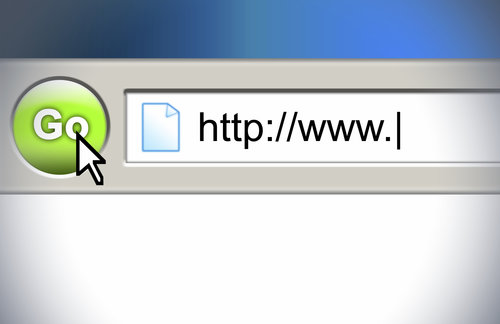Real estate agents should consider these pros and cons before building their own personal website.
It’s a trifecta of statistics that perfectly reflects the modern real estate market’s relationship with the web: 92 percent of homebuyers use the Internet at some point during their home search; 43 percent begin their homebuying process on the Internet; but 87 percent ultimately use a real estate agent.
So although the Internet is hugely influential for those buying a home, it has yet to make agents obsolete. However, few ventures are more beneficial in balancing those two dimensions than developing a unique website.
Here are some of the benefits that a custom website brings to an agent’s business:
1. A True Resource – All agents have webpages through their brokerage, but the profiles are generally flat, uninspired and remarkably similar to every other agent page on that website. A personal website, by contrast, allows agents the canvas to craft something unique, especially in the way of dynamic, useful information for visitors.
For instance, on a personal website, agents can write blog posts on the homebuying process and demonstrate their expertise in the many nuances of real estate. They can also craft interesting lists of fun things to do in their neighborhood of business, and recommend shops, restaurants, and venues for residents to visit. Finally, agents can provide news on mortgage rates and the local housing market, so potential clients are up to speed on what’s going on in the wider economy. Brokerage websites rarely allow even a scintilla of such customization, which can thoroughly help distinguish an agent from his peers.
2. A Personal Brand – Having a unique website and populating it with market updates, local tidbits and personal anecdotes allows agents to develop a personal brand. Whether it be the blog post that compares the merits of the 15- and 30-year fixed-rate mortgages, the narrative of that one time a client forgot to clean pet stains before a showing, or the foodie section that expounds on the area’s best pizza and hot dog joints, a unique website is a fabulous way to create a mood and a feeling unlike any other real estate website. Even a detailed section about the agent with information about career experiences, personal achievements and family is hugely distinguishing.
And best of all, a personal brand travels with agents regardless of their brokerage, so should agents transition to another company, they do not risk losing the character of their business.
3. A Hyper-Local Expert – There is local (writing generally about an area’s school district), and then there is hyper-local (writing about the best schools in the district and the best teachers at those schools). With so many real estate agents out there and so many Internet resources freely available, hyper-local knowledge will only become more important as housing recovers and more Millennials enter the homebuying fray. Imagine how impressive it would be to feature a list of, for instance, the most eco-friendly businesses in a neighborhood, along with photos and personal testimonials from the business owners.
4. A Place for Testimonials – The Internet has brought testimonials and customer reviews into the mainstream, and potential clients now expect such perspectives when researching agents – and such perspectives can be easily implemented into a personal website. After all, what looks better than an entire webpage dedicated to glowing reviews and testimonials about one’s business?
While those are all benefits to having a personal website, there are also considerable drawbacks, including:
1. Greater Cost – A brokerage website may be provided free of charge, but the costs of a personal website are going to come squarely from the agent’s pocket. So whether it be hosting fees, programming fees or any special marketing efforts (for example, boosting the site’s SEO capabilities and lead generation), agents can expect to write numerous checks throughout the year to keep their website humming.
2. Greater Upkeep – It’s one thing to create a website, but it’s an entirely different matter to maintain it. Hosting software updates constantly, which can lead to unanticipated changes in the website’s design that need to be addressed. Spam widely circulates the Internet, and can easily overwhelm website comment sections. And viruses and malware remain as ruthless as ever, which means investments in website protection and occasional IT calls.
3. More Work – All of those great Web features require constant work, and few things on the Internet are sadder than a static website with content from 2012 and 2013. Prospective clients visiting such a dated site may wonder if the agent is still in business! So if blogs, neighborhood updates and hyper-local content are the goal, such materials must be updated constantly.
4. Less Initial Exposure – One benefit to a brokerage website is exposure. A larger brokerage will have far more leverage in Google searches, and unless agents launch their own websites with considerable funding behind them, chances are they can expect less initial traffic to their site.

